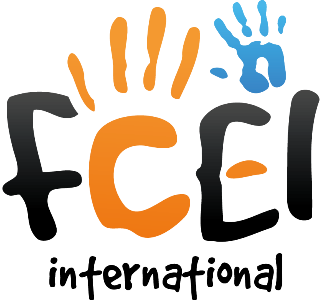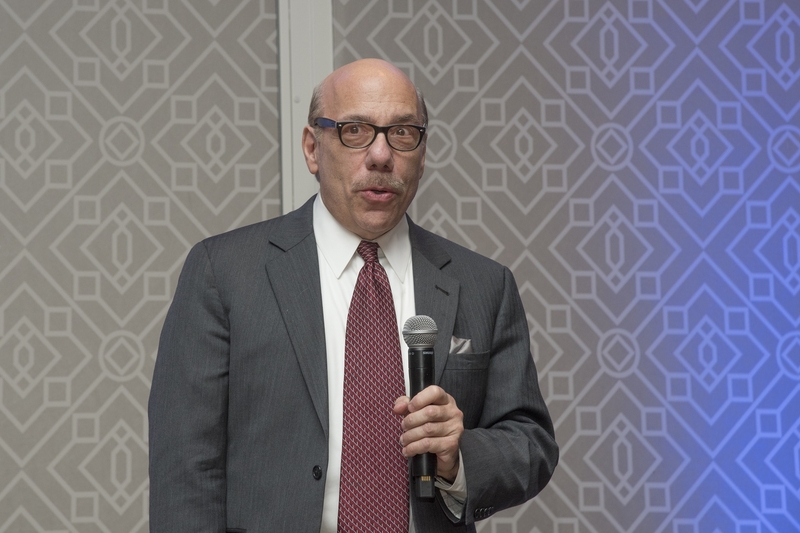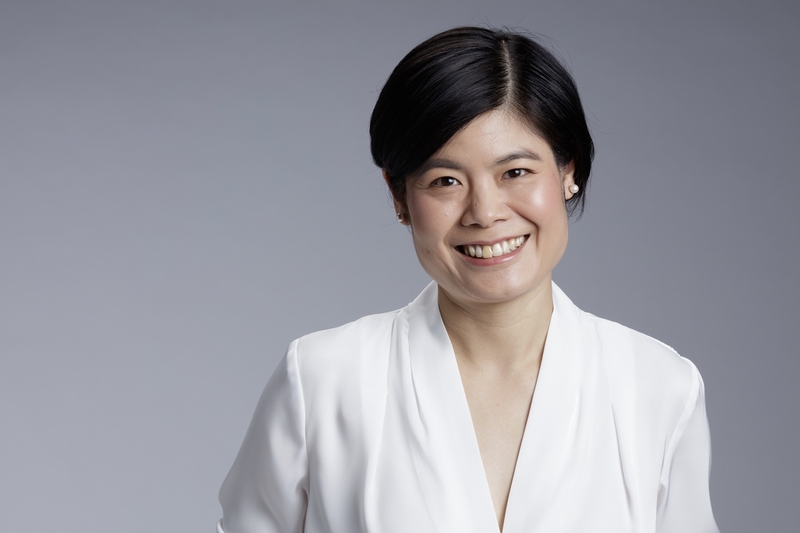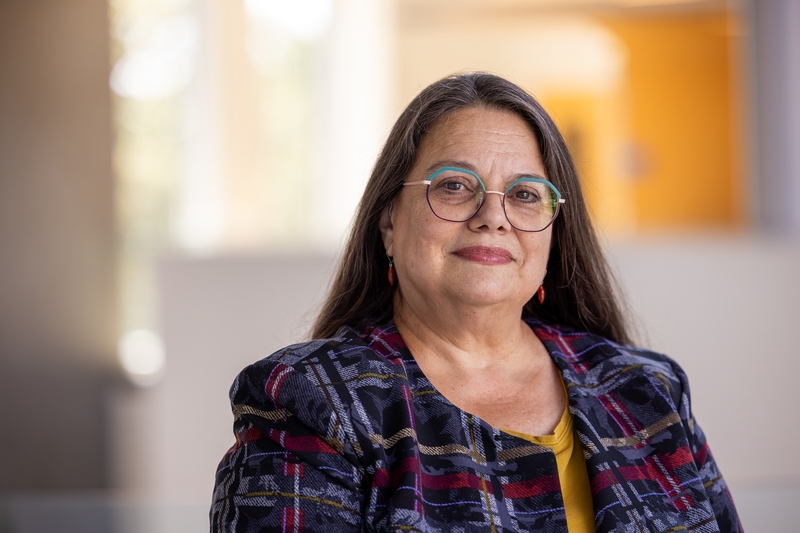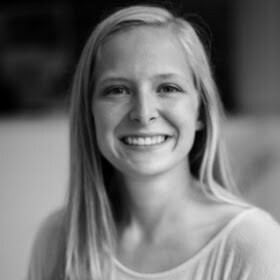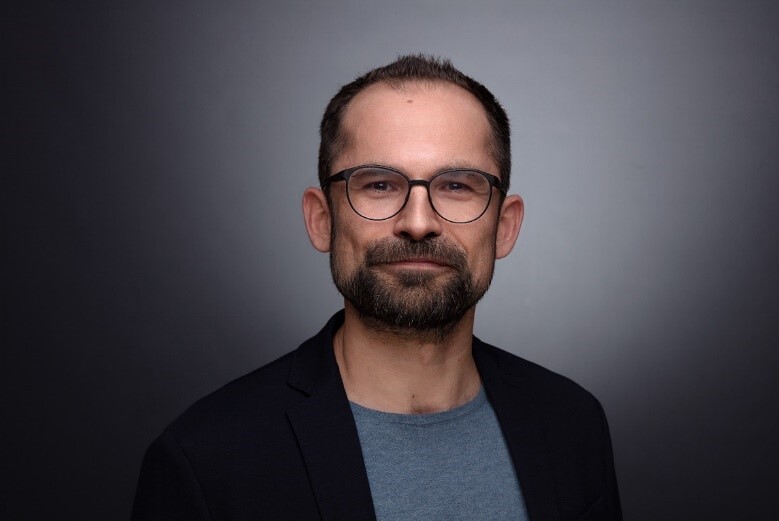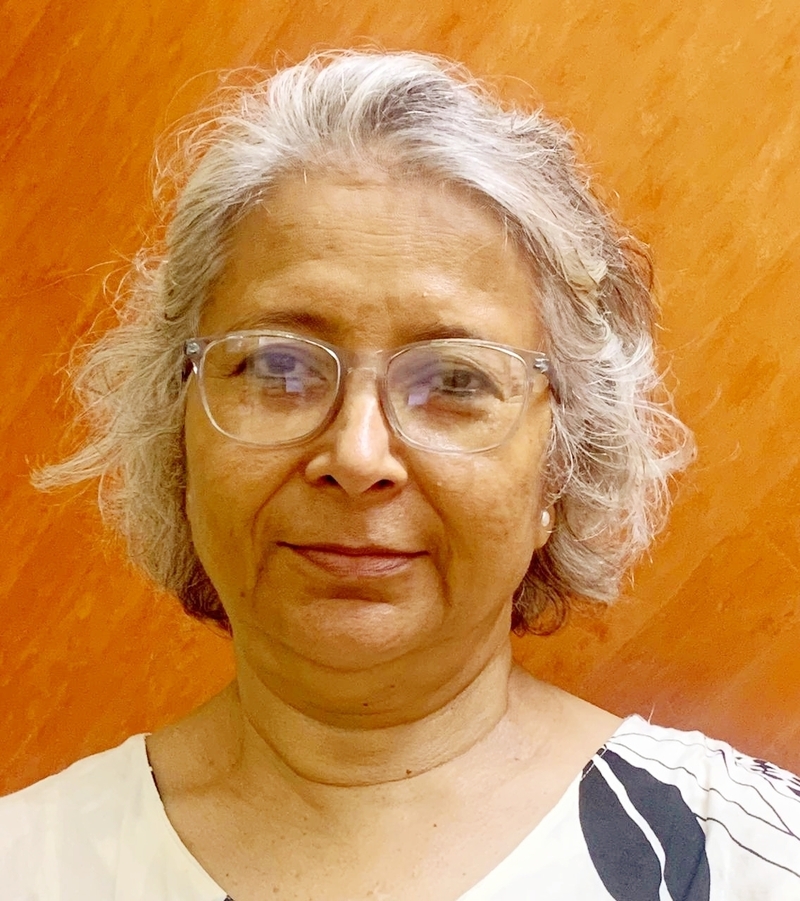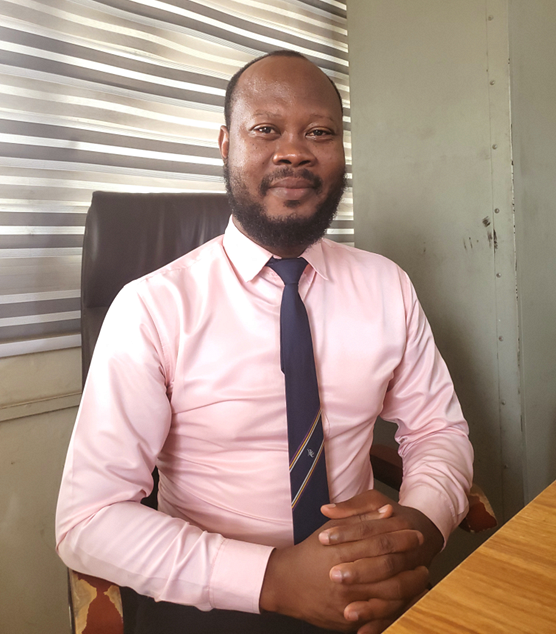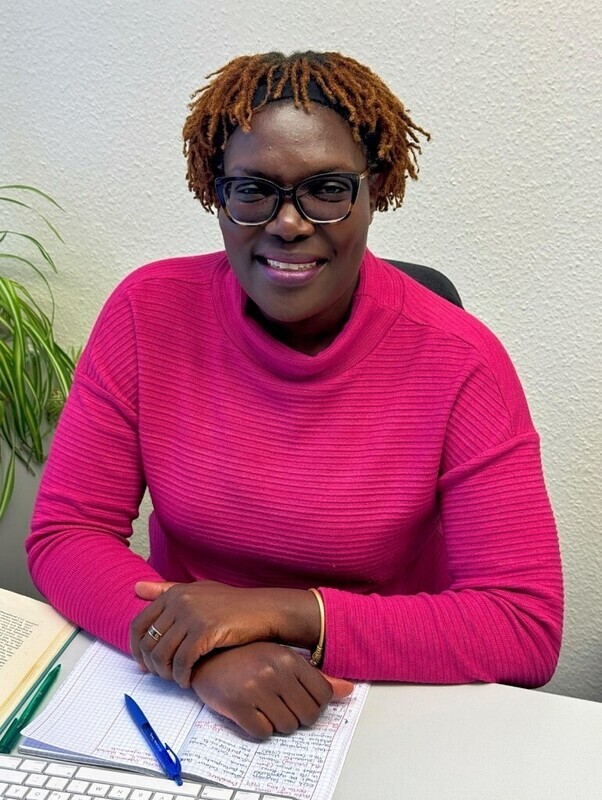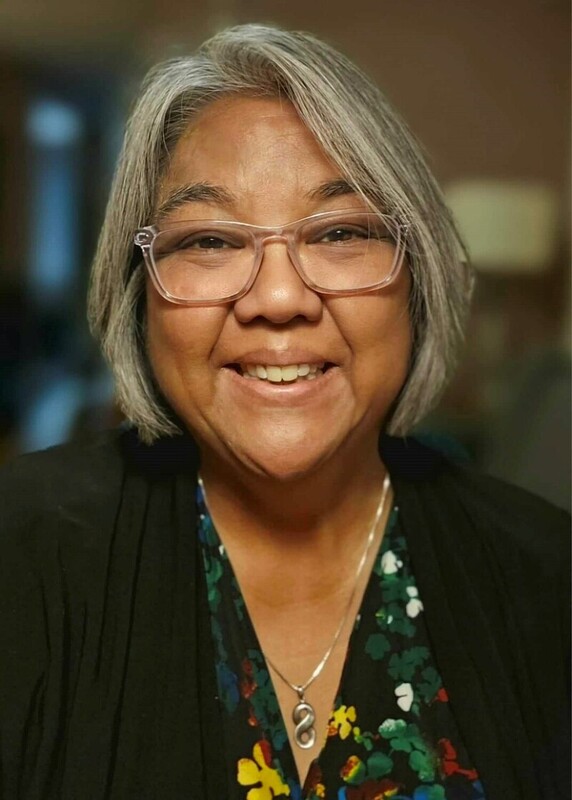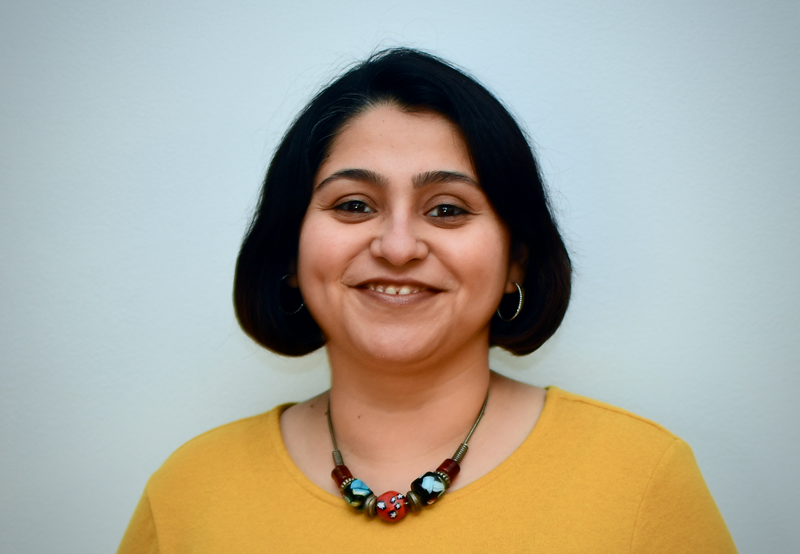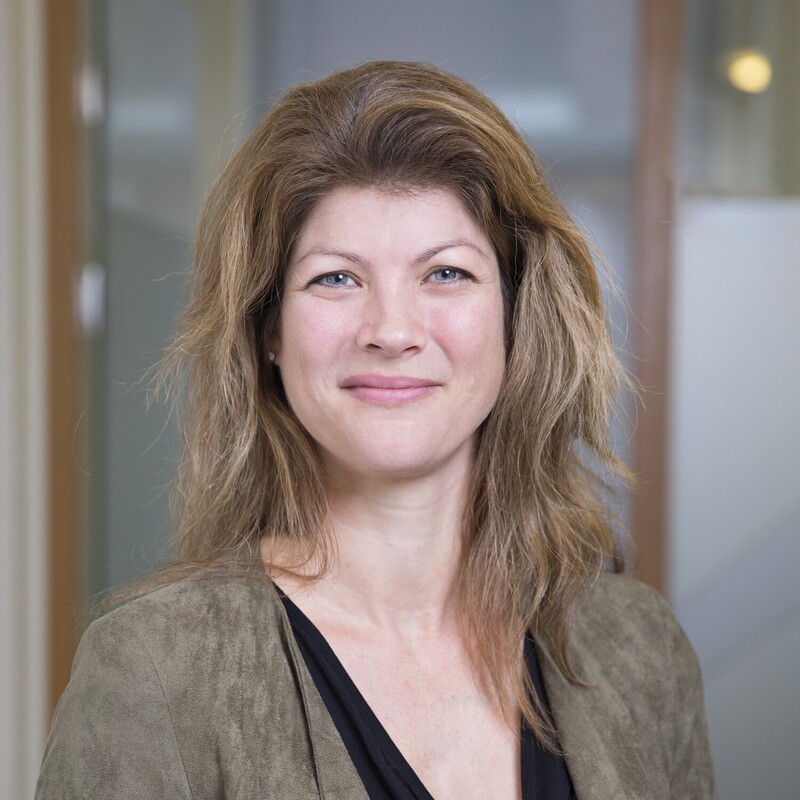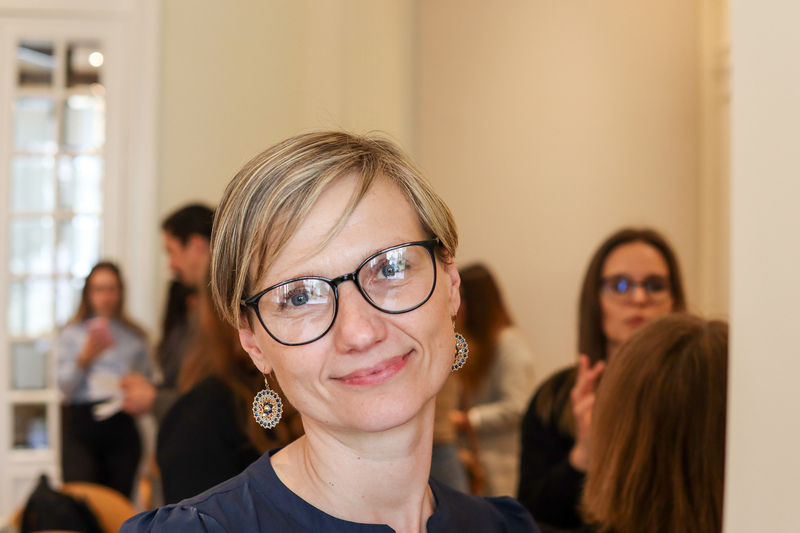
Pre-Conference Workshops
Morning
| Developing and nurturing systems for newborn Early Hearing Detection and Intervention (EHDI) pathways |
|
Presenters: Christine Yoshinaga-Itano Claudine Storbeck
Abstract: This workshop aims to be an interactive and hands-on session for stakeholders from locations and countries with few or no established services for newborn hearing screening pathways and family centred intervention. Together we will workshop and develop the key steps, building blocks, and elements required to establish authentic EHDI systems within the framework of the foundational FCEI principles and with multi-stakeholder partnerships.
Learning outcomes: By the end of the session, attendees will have begun developing their own unique draft EHDI plans for local implementation. |
| Intro to Artificial Intelligence: A Hands-On Workshop with Computers & Crayons |
|
Presenter: Matt Kaplowitz
Abstract: In a world where Artificial Intelligence (AI) can feel intimidating or exclusionary, this hands-on session invites you to explore the basics of Artificial Intelligence through the eyes of a young child. We’ll supply the crayons, you bring your laptop for this immersive, universally designed experience originally developed for children ages 3 to 5. The central goal of this workshop is to demonstrate how creative, narrative-rich activities can support expressive language, sensory engagement, and early symbolic thinking in children who are Deaf or Hard of Hearing. We’ll explore how story-making, visual art, movement, and AI support can create a playful yet structured environment for language development and communication.
Learning outcomes:
Target groups: |
|
Let’s read storybooks together! |
|
Presenters: and others
Abstract:
Learning outcomes:
Target groups: |
|
Making It Happen: Implementing FCEI DHH Adult Involvement Recommendations |
|
Presenters: Elaine Gale Hunter College, CUNY, USA, Natasha Cloete, Deaf Aotearoa, NZ
Abstract: This interactive workshop introduces resources from the Deaf Leadership International Alliance (DLIA), a global network of Deaf leaders and hearing allies advocating for Deaf leadership in Early Intervention. Together, we will explore practical strategies for applying Family-Centered Early Intervention (FCEI) principles with meaningful involvement of Deaf and Hard of Hearing (DHH) adults. Through real-world examples from around the globe, participants will see how key FCEI recommendations on DHH adult involvement are being implemented. These examples can be adapted by professionals, families, and Early Intervention programs or systems in diverse contexts. Join us to learn about DLIA, identify FCEI recommendations related to DHH adult involvement, discover how they are being put into practice worldwide, and connect with both familiar colleagues and new partners.
Learning outcomes:
Target groups: Open to all. This workshop will be provided in International Sign (IS). If you prefer to bring your own sign language interpreter, please let us know in advance so we can work out interpreting space. |
|
Building Authentic Parent-Professional Partnerships in Family-Centered Early Intervention |
|
Presenters: Terri Patterson, Janet DesGeorges, US
Abstract: This presentation examines how collaborative relationships and participatory practices, grounded in Family-Centred Early Intervention (FCEI) Principles, influence outcomes for children who are deaf. Through the integration of parent and professional perspectives, participants will explore dstrategies for shared and informed decision-making, capacity building, and authentic engagement. |
Afternoon
| Improving skills, consistency and quality in family centred early intervention practice: a workshop for EI providers |
|
Presenters:
Christine Yoshinaga-Itano
Abstract: |
| FCEI to children with unilateral hearing loss: Do we provide well-targeted services? State of the art worldwide |
|
Presenters: Nina Jakhelln Laugen, Anne-Mari Nordnes Skagen, Chris M. Aanondsen, Ingrid Hedström, Marlin Johansson, Ulrika Löfkvist Norway, Sweden Norwegian University of Science and Technology, Department of Psychology; Statped, Department of Hearing Impairment; St. Olavs Hospital, Unit for Deaf and Hard‑of‑Hearing Children and Adolescents in Central Norway, Department of Child and Adolescent Psychiatry; Centre for Clinical Research Sörmland; Uppsala university, Department of Public Health and Caring Sciences; Karolinska Institutet, Department of Clinical Science, Intervention and Technology
Abstract: FCEI should always be provided in line with available evidence and in accordance with the individual needs of each child and family. For children with unilateral hearing loss, however, support can look very different from one place to another. Research is growing, but clear best-practice guidelines are still limited. This means we sometimes risk offering too little support, too much, or services that require a great deal of time and effort without truly meeting the family’s needs.
In this interactive workshop, presenters from audiology, special needs education, speech and language therapy and psychology will share the latest insights on outcomes, etiology, and service provision, as well as sharing examples from their own clinical practices and as parents.
Following the presentations, participants will be invited to engage in “coffee-table discussions” in smaller groups. Each table, led by one of the presenters, will focus on a key FCEI principle.
Together, we will explore how FCEI is being delivered around the world and identify the most important questions facing parents, practitioners, and researchers working with children with unilateral hearing loss. The workshop will conclude with a panel discussion among the coffee table hosts, sharing main points from the coffee tables, discussing future directions, and open the floor for comments and ideas from the audience.
Learning outcomes: After the workshop, participants will have gained knowledge concerning the current state of knowledge concerning FCEI to children with unilateral hearing loss, and be inspired to ask the questions we need to ask in future research and practice to ensure well-targeted FCEI for each family.
Target groups: Professionals, researchers, parents |
|
Remote Practices: Leveraging technology to build positive family centred early intervention relationships |
|
Presenter:
Abstract:
Learning outcomes:
Target groups: |
|
Supporting Children with Cochlear Implants: A Practical Workshop for Families and Professionals |
|
Presenters: Teresa Schneider Speech & Language Therapist, Head of Therapy Department and Early Intervention; LZH Vorarlberg
Stefanie Muck Clinical Engineer; Speech & Language Therapist MED-EL Austria
Abstract: This interactive hands-on workshop offers essential knowledge and practical tools for both families and professionals working with children who use cochlear implants. Participants will:
Whether you're new to cochlear implants or looking to deepen your skills, this workshop will give you the confidence to support hearing and language in meaningful, everyday moments.
Learning outcomes: By the end of this workshop, participants will:
Target groups: Professionals, working with children with hearing implants and family members of CI-users or potential candidates |
|
Only in German! Was uns besonders herausfordert - wir lernen gemeinsam an konkreten Beispielen. Particular challenges in the FCEI practice - we learn from one another using specific examples |
|
Presenters: Doris Binder Speech-language Therapist, Head of the Family-Centered Linz Intervention Program (FLIP)
Johannes Fellinger Psychiatrist and Neurologist
Daiva Müllegger-Treciokaite Parent Peer FLIP, Austria
Abstract: Im Mittelpunkt stehen Fälle aus der familienzentrierten Frühintervention für Familien mit Kindern mit Schwerhörigkeit oder Gehörlosigkeit, die uns herausfordern und an denen wir gewachsen sind. Sowohl Selbstreflexion ist dabei gefragt als auch „Muster“ zu erkennen die sich trotz individueller Unterschiede und Zugänge oftmals herauskristallisieren. Wir beleuchten zB Familien mit Migrationshintergrund und Mehrsprachigkeit, mit Kindern mit besonderen Bedürfnissen und mit geringer Bereitschaft oder Ressourcen anhand unserer Erfahrungen. Auch Austausch zu eigenen Beispielen der Teilnehmenden ist erwünscht und wird in gelenkter Gruppenarbeit Teil unseres interaktiven, an konkreten Lösungen orientierten Workshops sein.
We present cases from family-centered early intervention for families with children who are hard of hearing or deaf, which challenge us and help us grow.This requires both self-reflection and the ability to recognize “patterns” that often emerge despite individual differences and approaches. We highlight, for example, families with a migration background and multilingualism, with children with special needs and with little willingness or resources, based on our experiences. We also encourage participants to share their own examples, which will be part of our interactive, solution-oriented workshop in guided group work.
Learning outcomes:
Learning outcomes and implementation of the skills learned: We would like to provide participants with a colorful everyday toolbox containing a collection of ideas from the practical experience of three different professional groups (early interventionist, parent peer, psychiatrist), which will serve as a guide for various challenging situations in families.
Target groups: Für alle Teilnehmenden offen; speziell wollen wir alle deutschsprachigen Fachpersonen ansprechen - hörend oder mit Gehörlosigkeit/Schwerhörigkeit – die beruflich oder ehrenamtlich mit und in Familien arbeiten.
Open to all participants; we especially want to reach out to all German-speaking professionals—hearing or deaf/hard of hearing—who work with and in families, either professionally or voluntarily.
Der Workshop wird auf Deutsch und bei Bedarf in ÖGS angeboten!
The workshop will be offered in German and, if necessary, in Austrian Sign Language! |
Main-Conference - Keynote Presentations
|
GPODHH: Real World Perspectives: What Parents Wish Professionals Knew |
|
Abstract: With scientific and technological advances, challenging new questions have emerged for the field of family-centered early intervention. This diverse panel of parents will explore their experiences with newborn screening procedures, genetic testing, and informed choice decision-making. What was helpful about the process, and what wasn’t? How are conversations with professionals different than when parents talk amongst themselves about their concerns? Which communications and resources positively or negatively influenced a family’s understanding of their child’s condition, future planning, and connection to community? What are their biggest hopes (and worries) about the future for their child? This powerful plenary will offer surprising insights into the varied ways families navigate uncertainty and find what works best for their child, shaping their tomorrow. |
|
DLIA: Looking Forward: FCEI Deaf Adult Leadership |
|
Abstract: This keynote address will spotlight the critical role of Deaf adults in Family-Centered Early Intervention (FCEI) systems. Deaf adult involvement ideas, innovations and challenges shaping tomorrow will be shared. The keynote speaker, to be announced, will bring a unique perspective informed by lived experience and professional insight that aligns with the conference’s commitment to FCEI. Final keynote details will be shared in an updated program. |
|
Matt Kaplowitz: Welcoming the Future: AI as a Partner in Family-Centered Early Intervention |
|
Abstract: Imagine technology smart enough to support early language access for Deaf and Hard of Hearing (DHH) children—without requiring them to read. This keynote introduces the potential of Artificial Intelligence (AI) in family-centered early intervention, especially for children ages 0–5 and the families and practitioners who care for them.
Bio: Emmy, Peabody, and Grammy Award-winning producer, universal design developer, and AI strategist Matt Kaplowitz is CEO of Bridge Multimedia, a New York City-based public benefit enterprise advancing universal access for disability and aging communities. At Bridge, he leads a cross-disciplinary team specializing in Accessible Technology, Special Education, Cognition, Orientation/Mobility, and Media Production.
Since 2002, under guidance from The American Foundation for the Blind and the U.S. Department of Education’s National Center for Technology Innovation, Matt has developed foundational accessibility tools including BridgeBuilder and Universal eLearner. As a U.S. State Department digital communications delegate, he helped set global technical standards for digital TV. He has also served on the U.S. Access Board’s 508 Standards and Telecommunications Guidelines Subcommittee, the FCC’s Disability Advisory Committee, and as Special Advisor to the 2016 National Council on Disability.
Since 2020, Matt and the Bridge team have partnered with the STEMIE Center at UNC-Chapel Hill’s Frank Porter Graham Institute to enhance access to STEM for children with disabilities ages 0–5. He is also guiding Bridge’s Sign Language Services Department in addressing accessibility across film/TV, health and wellness apps, emergency information platforms, ASLenhanced gaming, and virtual events. Matt is the lead developer of a three-part AI webinar series aligned with FCEI’s mission and backed by a 12-member Deaf Advisory Board with experience on five U.S. national TV series for young children.
His recognitions include ACB’s Lifetime Achievement Award (2025), AFB’s Access Award, AER’s Nat Seaman Award, and NYN Media’s Nonprofit Trailblazer Award.
|
|
Valerie Sung: Innovating with Care: Embracing Advances for Deaf and Hard of Hearing Children |
|
Abstract: Advances in technologies have opened new opportunities for deaf and hard of hearing children and their families. Access to screening tests — whether for hearing ability, congenital infections like cytomegalovirus infection (CMV), or genetic conditions — is not an endpoint, but a gateway to a journey that requires sustained support, collaboration, and understanding.
This keynote highlights the essential interplay between innovation and compassion in supporting the care of deaf and hard of hearing children. For many families, access to new innovations opens doors; for others, it raises difficult questions. In particular, the growing role of genetic screening raises critical ethical considerations. As we gain the ability to detect more conditions earlier, we must ask: How do we ensure informed consent and protect families from undue pressure or stigma? How do we communicate uncertain or life-altering results with honesty, sensitivity, and hope? And as the potential for interventions — such as gene therapies — expands, who decides what should be done, and do we have the child or family at the heart of the decision making process? In doing so, can we ensure deaf and hard of hearing children have the best opportunities to live fulfilled, meaningful lives?
The presentation explores the authentic inclusion of families with lived experience and the voices of deaf and hard of hearing children in shaping holistic care through developing a national Core Outcomes Set and data system in Australia. It challenges us to look beyond the traditional health system and build frameworks that are ethically grounded, emotionally supportive, and ready for a future where technology and care advance together.
Bio: Associate Professor Valerie Sung is a consultant paediatrician at The Royal Children’s Hospital, Co-Group Leader and Senior Research Fellow at the Murdoch Children’s Research Institute, and Honorary Clinical Associate Professor at the University of Melbourne, Australia. Her research program on childhood deafness adopts a health services framework, focusing on ethically sound and consumer-accepted approaches to: (i) using routine clinical and health services data for quality improvement and research, and (ii) establishing large-scale registries to address key research questions. The overarching vision of A/Prof Sung’s work is to ensure that all deaf and hard of hearing children have the best chance to reach their full potential and live healthy, meaningful lives. Her contributions to deafness research were recognised with the 2019 L’Oréal-UNESCO Australia For Women in Science Fellowship.
A/Prof Sung is founder and chair of the Childhood Hearing Australasian Medical Professionals (CHAMP) Network which developed national guidelines for managing childhood deafness. She is a committee member of the Australian Newborn Hearing Screening Committee, the Australian Hearing Hub Universal Newborn Hearing Screening Expert Working Group, the Australian Institute of Health and Wellbeing Ear and Hearing Advisory Group, and Steering Committee Member of the Children's Healthcare Australasia development of a national Paediatric Patient Reported Experience Measure. She is editorial member of BMC Pediatrics, past editorial member of Journal of Paediatrics and Child Health, and past member of the Royal Australasian College of Physicians Paediatric Research Committee and Australasian Paediatric Research Network Steering Committee.
https://www.mcri.edu.au/researcher-details/valerie-sung https://www.linkedin.com/in/valerie-sung-7089bb86/
|
|
Teresa Blankmeyer Burke: The Ethics of OTOF Gene Therapy: Compassion, Communication and Care |
|
Abstract: As news of the recent gene therapy for the OTOF (otoferlin) gene swept the world, initial responses were those of joy and hope – especially from parents who wanted a flourishing life for their deaf and hard of hearing children and saw this as a step in that direction. As a deaf bioethicist, my own response was tempered with caution and questions: What did such results mean for the future flourishing of deaf and hard of hearing children? How could we move forward in a way that allowed individuals to share their concerns and dreams in spaces that supported different perspectives? What does genuine listening of care and compassion look like in these spaces? What values are embodied in such discourse and how will these values be communicated and experienced by those most impacted – deaf and hard of hearing children?
Philosopher bioethicists evaluate and assess normative arguments -- arguments about how to do the right thing. Yet values emerge in cultural contexts varying widely across time, communities, societies, and individuals. Contrary to popular opinion, bioethicists do not pronounce ethical edicts from ‘on high’ – rather, we are trained to support and elicit difficult conversations about topics that are controversial. OTOF gene therapy is one such topic. My goal is to provide a frame for having these difficult conversations in a way that models respectful discourse using the tools of analytic philosophy. In so doing, I consider a wide range of perspectives, including parents, deaf and hard of hearing children, deaf and hard of hearing adults (of which I am one), providers and educators. Universal agreement is not the end goal; rather, setting an example for our deaf and hard of hearing children that supports their unique individual flourishing over time is the focus of these important conversation.
Bio: Teresa Blankmeyer Burke is Professor of Philosophy and Director of the School of Arts and Humanities at Gallaudet University. The first signing Deaf woman to achieve a PhD in Philosophy in the world, Dr Burke was recognized for her work in ethics of technology in 2025 as a Fulbright Scholar Distinguished Research Chair in Brazil at the Federal University of Santa Catarina. Dr. Burke is recognized internationally for her pioneering work on the ethics of genetic technology and the impact on deaf people. Dr. Burke's research includes publications in bioethics, ethical theory, applied ethics, ethics of emerging technology, ethics of sign language interpreting, philosophy of disability, philosophy and public policy, and moral psychology. She has provided her expertise in bioethics and disability to numerous international, national and state entities, including the United Nations, the National Council on Disability (USA), the World Federation of the Deaf, the Registry of Interpreters for the Deaf (USA), and the Hearing Loss Association of America. Dr. Burke also participates in public philosophy, including working with spoken, written, and signed language media outlets, including NPR, PBS, Al Jazeera, The Daily Moth (ASL news), the New York Times, and The Economist, among others. She is also a published poet and creative nonfiction author in written English and American Sign Language.
|
|
Tayla Newman: From Story to Play: Innovative & Tangible Learning Tools for Family-Centered Early Intervention |
|
Abstract: The early years of a child’s life are a powerful time period for connection, learning, and language. Infants are born ready to learn, and caregivers are integral in providing the quality language input they need. For Deaf infants, decades of research have shown that early exposure and acquisition of signed languages during this 0-3 window is critical. Families who learn sign language play a key role in making language access consistent for the child and throughout the child’s environment. By starting early, families help protect their Deaf children from language deprivation. This is a critical step because language deprivation has lifelong consequences, from learning difficulties to adverse health outcomes.
At Motion Light Lab, we believe in the potential of Deaf children and their families. We create interactive and immersive learning experiences that are sign-centric, and support bilingual learning. Our resources include award-winning bilingual storybook apps in both sign language and printed text, language-learning toys, and Deaf-centric storytelling with 3D signing avatars created through our cutting-edge motion capture system. Our work is about creating joy, opportunities, and elevating our incredible Deaf artists and storytellers. Our resources are designed based on decades of research by Visual Language and Visual Learning, a premier research center at Gallaudet University, focusing on how the deaf child learns through the visual modality.
We invite you to learn about our resources and how they can benefit Deaf children. Together we can shape a future where Deaf children thrive through the power of sign language.
Bio: Tayla Newman is a Deaf woman from Washington, D.C., born into a large signing family with a beautiful mix of Deaf and CODA (Children of Deaf Adults) individuals. Growing up with full access to signed language, she noticed the contrast between her experience and that of some other Deaf children without the same access. This led her to be passionate about being part of the movement to end language deprivation.
Tayla got her bachelor’s degree in American Sign Language and English, and a master’s degree in Linguistics, both from Gallaudet University. She now works as a Project Manager at Motion Light Lab, where she supports projects focused on bilingual storytelling and sign language animation.
In her free time, Tayla enjoys playing pickleball and spending time with her four dogs.
|
|
Dr. Jan Van Dijk Memorial Keynote Johannes Hofer: Medical Home: Multidisciplinary Developmental Care for Deaf-plus Children |
|
Abstract: Children with congenital hearing loss – particularly those with complex additional disabilities – require more than discipline-specific interventions. High-quality developmental care must build on multi- and interdisciplinary diagnostics, complemented by coordinated guidance that goes well beyond hearing rehabilitation alone. This lecture will explore how the concept of the medical home can serve as a trusted framework for comprehensive, family-centered, and development-oriented care pathway. Insights will be drawn from the experiences and current practices of the Developmental Medicine Centre Linz.
A central focus will be on the role of long-term, multidisciplinary developmental guidance. For children with Deaf-plus conditions, such collaborative support fosters parental acceptance, creates continuity of care, and enables genuine shared decision-making. Families are thus better prepared to engage in complex choices regarding genetic testing, hearing technology, and individualized intervention strategies.
When securely embedded within a medical home, families can translate the insights from multidisciplinary diagnostics into everyday life, supported through ongoing collaboration among interventionists, educators, physicians, and other professionals.
Bio: Prim. Dr. Johannes Reinhard Hofer is a dual board-certified specialist in Pediatrics and Neurology and currently serves as the Head of the Institute for Neurology of Senses and Language at the Hospital St. John of God in Linz, Austria. He is also a research associate at the Clinical Institute of Developmental Medicine at Johannes Kepler University Linz.
Dr. Hofer’s medical training began at the Medical University of Innsbruck, where he specialized in Pediatrics with a focus on developmental medicine. He later completed his specialization in Neurology at the same institution where he currently leads the Neurolinguistic Outpatient Clinic. His academic contributions include numerous peer-reviewed publications, particularly in the fields of neurodevelopment, hearing impairment, autism spectrum disorders and rare pediatric nephrological conditions.
He is an active member of several professional organizations, including serving on the board of the Austrian Society of Pediatrics and Adolescent Medicine (ÖGKJ) and as a working group leader for Developmental and Social Pediatrics. He also holds teaching positions at the medical faculty of JKU Linz, the University of Applied Health Sciences Upper Austria, and various educational institutions in Austria.
Dr. Hofer is married with two children and is deeply committed to inclusive medicine, interdisciplinary teaching, and translational research that bridges clinical care and developmental science.
|
|
Snigdha Sarkar: |
|
Abstract: When a mother in India gave birth to a child with hearing loss, she began a journey that transformed not only her own life but also the lives of many others.
Perplexed with no prior knowledge she sought professional help, unsure of what lay ahead. She connected with other parents and formed a support group that offered both comfort and purpose. Over time, she became part of the global coalition of parents of children who are deaf or hard of hearing.
This collaboration began on a bus while returning from a conference. She began a conversation with a mother from the UK about newborn hearing screening in India. That mother introduced her to someone with deep experience in UNHS. Though their chat ended at the airport, the discussion continued. She kept thinking why there was so much disparity between countries. She realized that change doesn’t just happen – one has to make it happen. She learnt that it took several years to establish what seems today a near perfect UNHS programme or EHDI.
Without funding or contacts, amidst a global pandemic, she pursued an impossible idea. Encouraged by peers, her mentor and her friends in the UK network, she absorbed their wisdom and planned starting one in India.
In sharing this story, the presenter will reflect on the practical lessons learned: how to build connections, navigate resistance, and stay the course when the road is long. She intends highlighting the emotional truths of advocacy—the power of lived experience and the ripple effect of connecting, communicating, and collaborating.
This session will resonate with anyone working to improve systems for children who are deaf or hard of hearing. It is a reminder that meaningful change often starts with a small story—and grows when that story is shared.
Bio: Snigdha Sarkar is a lawyer, special educator, and a mother to a deaf young adult, residing in Kolkata, India. Her personal journey has deeply influenced her professional commitment to advocating for children who are Deaf or Hard of Hearing (DHH).
In 2004, Snigdha co-founded Anwesha Kolkata, a parent-led support group dedicated to empowering families of DHH children. The organization focuses on language development, parents training, and self-advocacy, serving as a beacon of hope and support for parents navigating the challenges of raising DHH children. www.anweshakolkata.org
Anwesha has been instrumental in advocating for the rights of DHH children, including successful campaigns for language rights and inclusive education policies in West Bengal. file:///C:/Users/SS/Downloads/9789240020481-eng.pdf (Page 24-25)
Beyond her work with Anwesha, Snigdha has held several significant positions:
Her journey: “When my daughter was born, little did I know of the journey that lay ahead... Little did I realise then that, in reality, it was she who was leading me to a path that was more beautiful, meaningful, and fulfilling.” Café Dissensus
Snigdha’s work continues to inspire and drive change, ensuring that children who are Deaf or Hard of Hearing are not left behind but are empowered to reach their fullest potential.
|
|
Richard Doku and Margaret Odhiambo: Innovation Approaches in Family-centred Early Intervention for Deaf Children in Africa: Perspectives from Ghana and Kenya |
|
Abstract: This presentation highlights innovative early intervention models emerging in Kenya and Ghana, where deaf children face significant developmental delays due to delayed identification and limited access to support services. A family-centered approach, built on interdisciplinary collaboration and culturally sensitive training, empowers caregivers, healthcare providers, Deaf professionals, and educators to facilitate optimal language acquisition and communication development. Drawing from fieldwork and grassroots initiatives, we showcase context-specific models that prioritizes culturally sensitive training and accessible communication methods, including Kenyan and Ghanaian Sign Languages, and community engagement. This session offers insights into reimagining early intervention in low-resource settings through collaboration, cultural relevance, and local leadership.
Bio: Richard Doku is an experienced educator and researcher specializing in special education and mathematics. He holds a Bachelor of Education from the University of Education, Winneba (UEW), Ghana. He is a deaf mathematics teacher and Sign Language Project Officer at the Ghana National Association of the Deaf (GNAD). With extensive experience in research assistance, Richard has contributed to notable research projects, including a British Academy-funded study on early education for deaf children and their caregivers in Ghana. His research expertise lies in early education for deaf children. Currently, he is pursuing a Master of Philosophy (Special Education) degree. Richard seeks to establish global research collaborations to enhance early education initiatives for deaf children in Ghana.
Margaret Odhiambo is a seasoned early childhood educator with over a decade of experience in teaching and advocacy. Trained at Gallaudet university, she has passionately advocated for language development in young deaf children. She has worked extensively with parents in Kenya, teaching Kenyan Sign Language (KSL) to bridge communication gaps at home. She has been actively involved in initiatives promoting early language acquisition and inclusive educational practices with a strong commitment to ensuring that all children have access to the foundational tools for lifelong learning.
|
|
Tina Childress: Power in your Pocket or Purse: Accessibility Options for iOS and Android devices |
|
Abstract: Technology is constantly evolving—and for children who are Deaf or Hard of Hearing (DHH), mobile devices can open doors to greater independence, communication, and engagement. In this interactive session, we’ll explore the newest accessibility features built into iOS and Android operating systems, including tools for speech-to-text, live captions, and sound recognition. These built-in tools are designed to support real-world challenges faced by DHH children in educational, home, and community settings.
Beyond native features, we’ll also review third-party apps that provide additional support, from group captioning tools and visual alert systems to translation and communication aids to aural rehabilitation tools. Participants will have the opportunity to explore settings on their own devices and ask questions about optimizing features for pediatric users.
Whether you're a parent navigating tech for the first time, an educator supporting inclusive classrooms, or a hearing professional guiding families through technology choices, this session will empower you with current, practical knowledge to better support DHH children. Please bring your smartphone or tablet with the latest system update installed to get the most out of this hands-on session.
I will share perspectives from parents, educators and hearing healthcare professionals on the use of these mobile accessibility tools.
Bio: Tina Gonzales Childress, Au.D., CCC-A is a dynamic educational audiologist who bridges the worlds of audiology, accessibility, and lived experience. Working in both mainstream and residential school settings, she is also a sought-after presenter, adjunct lecturer, and mentor to individuals of all ages navigating hearing loss. As a late-deafened adult with bilateral cochlear implants and fluency in American Sign Language, Dr. Childress brings a rare and valuable dual perspective—equally at home in Deaf and hearing communities.
Her expertise spans assistive and access technologies for both visual and auditory communicators, advocacy for inclusive practices in performing arts spaces and virtual platforms, and supporting the emotional journey of hearing loss. A recognized leader, she actively contributes to local, state, and national Boards and Committees and creates widely used online resources to empower individuals who are Deaf or Hard of Hearing and those who support them.
Explore her resource hub at TinaChildressAuD.com where her motto and logo reflect See.Hear.Communication.Matters.
|
|
Uma Soman: Individualized Intervention through Parent-Professional Partnership: Empowering Families, Transforming Lives |
|
Abstract: Across countries and cultures, families raising a deaf or hard of hearing child encounter universally shared experiences, and yet navigate a profoundly unique individual journey. While common threads connect them—the initial discovery, the search for information, the emotions they navigate—each family’s individual circumstances, the child’s learning profile, the cultural and linguistic background, and desired outcomes shape their distinct trajectory. This keynote will explore the critical importance of a truly individualized, family-centered approach in early intervention, moving beyond a “one-size-fits-all” model, through fostering strong partnerships between the families and professionals.
Drawing upon the core tenets of Family-Centered Early Intervention, we will delve into how professionals can genuinely meet families where they are and propel them towards achieving their desired outcome. This presentation will emphasize fostering authentic engagement rather than mere compliance, empowering parents as the ultimate experts on their child, while professionals serve as knowledgeable guides in language and development. We will explore how the role of the professional changes in response to the family's ever-evolving strengths and needs. We will discuss how early interventionists can address the stressors that a family encounters. Attendees will hear compelling pre-recorded testimonials and reflections from parents, offering powerful insights into their diverse journeys. We will also introduce practical tools and strategies that professionals and parents can utilize to initiate and strengthen these vital partnerships. Ultimately, this keynote will highlight how empowered parents, in collaboration with skilled professionals, can transform a child’s life trajectory, ensuring every deaf and hard of hearing child has the opportunity to thrive.
Bio: Dr. Uma Soman is an educator of deaf and hard-of-hearing (DHH) children and a leader with over 20 years of experience shaping best practices, mentoring professionals, and advancing family-centered intervention. As a Listening and Spoken Language Specialist, Certified Auditory-Verbal Educator (LSLS Cert. AVEd), she has dedicated her career to empowering families and professionals to maximize potential of DHH children.
Dr. Soman is the Co-Founder and Director of Listening Together, a global nonprofit committed to parent empowerment, professional development, and public awareness. She mentors professionals pursuing LSLS certification in the U.S. and India and conducts specialized training programs for teachers of the deaf, speech-language pathologists, and audiologists in English, Hindi, and Marathi.
Dr. Soman has held faculty positions at Fontbonne University, Vanderbilt University and the University of Illinois in USA, where she prepared the next generation of professionals in deaf education, speech-language pathology, and audiology.
A sought-after speaker, Dr. Soman presents at national and international conferences on a wide range of topics, including language and literacy development, working with bilingual / multilingual families, and family-centered intervention. She also leads training workshops for schools and clinics, helping professionals implement evidence-based practices.
Dr. Soman has served on the boards of AG Bell Academy for Listening and Spoken Language Board and the OPTION Schools. She is currently on the Hands & Voices FL3 Advisory Board, continuing to shape the field of DHH education through advocacy, leadership, and professional development.
|
|
Lizet Ketelaar and Katja Lenic Salamun: Supporting social-emotional growth: Insights from research and lived experience |
|
Abstract: One of the most vital developmental milestones for children is learning how to build meaningful connections and interact effectively with others. At the core of this ability lie social-emotional skills. Parents play a pivotal role in shaping their children’s development - so how can they best support the social-emotional growth of their Deaf or Hard-of-Hearing children? In this keynote, Katja Lenic Salamun will share her personal journey as a parent of a Deaf son, offering heartfelt reflections and practical insights. Complementing this perspective, Lizet Ketelaar will present findings from recent and ongoing research that explore key aspects of social-emotional development in Deaf and Hard-of-Hearing children. She will discuss a parent program aimed at helping parents support their Deaf and Hard-of-Hearing children’s social-emotional development. Together, these perspectives aim to inspire and inform both professionals and families on how to best support children’s social-emotional growth.
Bio: Dr. Lizet Ketelaar is a developmental psychologist with a Ph.D. from Leiden University in The Netherlands. Her doctoral research focused on the social-emotional development of young children with cochlear implants. She currently serves as a senior researcher at the Dutch Foundation for the Deaf and Hard-of-Hearing Child in Amsterdam. One of her primary research themes is the social-emotional development of young Deaf and Hard-of-Hearing children, with a particular interest in their theory-of-mind development.
Katja Lenic Salamun is a translator and European projects manager, as well as the mother of a Deaf child. She developed and coordinated the Erasmus+ project SILENT, which focuses on supporting hearing parents of Deaf children in the early stages after the diagnosis. Katja works with families, providing guidance and support. She is currently developing a new project aimed at helping hearing parents support the social-emotional development of their Deaf children.
|
Supported by:

